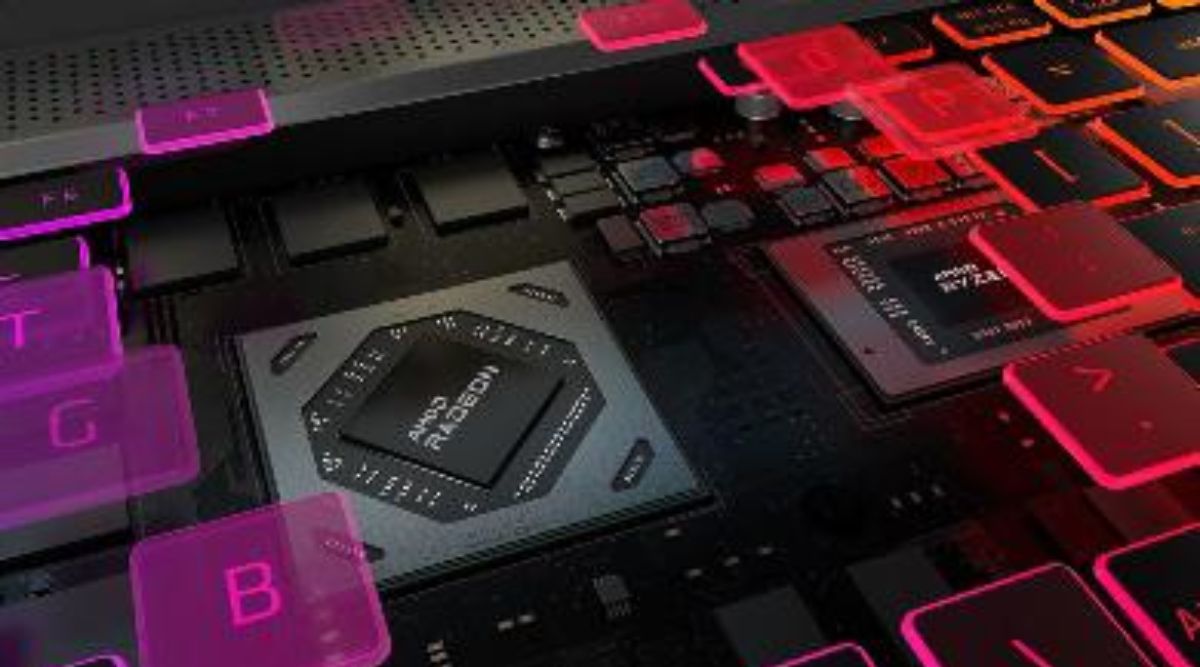 A global semiconductor shortage of chips has impacted everything from PCs and automobiles to game consoles. (Image Source: AMD)
A global semiconductor shortage of chips has impacted everything from PCs and automobiles to game consoles. (Image Source: AMD) American semiconductor company Advanced Micro Devices, Inc. (AMD) says it is doing everything possible “to drive global semiconductor availability”.
“We have made significant investments in just about every element of our supply chain to ensure we are not just able to get the supply that we think that we need, but also investing to build additional capacity for our suppliers,” David McAfee, Corporate VP, Product Management and Marketing at AMD told indianexpress.com in a call from Austin, Texas. “It’s something that has been an enormous focus area,” McAfee added.
A global semiconductor shortage of chips has impacted everything from PCs and automobiles to game consoles. Global demand for chips, the “brain” inside a variety of electronic products, is far exceeding the supply with the pandemic changing use cases in many ways.
 As one of the world’s leading chipmakers, AMD makes processors that power personal computers, video game consoles like PS5 and Xbox Series X and data centers. (Image Source: AMD)
As one of the world’s leading chipmakers, AMD makes processors that power personal computers, video game consoles like PS5 and Xbox Series X and data centers. (Image Source: AMD)
As one of the world’s leading chipmakers, AMD makes processors that power personal computers, video game consoles like PS5 and Xbox Series X and data centers. As the explosive demand in PCs first became visible in the early days of the pandemic, McAfee said one of the steps AMD took “was to go source more capacity in every step of the supply chain, making investments on a very significant scale globally to ensure that we can drive as much demand for products”.
Accepting that more needs to be done, McAfee said that while the semiconductor shortage is an obstacle, the demand for PCs is beyond what the global semiconductor industry can cater to.
The pandemic has woken up the PC segment that had plateaued for many years. Since remote work and learning aren’t going away soon, the demand for PCs from businesses, schools and consumers is likely to remain high. According to research from IDC, worldwide shipments of PCs, which includes desktops, notebooks, and workstations, reached 83.6 million units in 2Q21. But the global shortage of computer chips threatens to slow down the PC market in its golden moment.
“Prior to the Covid, the PC industry was going through a period of slow innovation,” he said, adding that the pandemic has helped in the explosion in demand for PCs globally. “PCs now are far more premium and far more capable than the world was historically buying,” McAfee said. “We’ve seen more growth in gaming PCs, for instance, over the past 18 months than we ever would have imagined.”
 While chipmakers like AMD are pushing hard to overcome the prolonged shortage of chips by increasing production, the truth is that building new capacity takes years. (Image Source: AMD)
While chipmakers like AMD are pushing hard to overcome the prolonged shortage of chips by increasing production, the truth is that building new capacity takes years. (Image Source: AMD)
While chipmakers like AMD are pushing hard to overcome the prolonged shortage of chips by increasing production, the truth is that building new capacity takes years. A chip takes as long as three to four months to develop, and it involves a high-tech process that can only be done at specialised chip fabs. Taiwan Semiconductor Manufacturing Company (TSMC) is the world’s largest foundry that counts major technology firms such as Apple, Qualcomm and AMD as its clients. The problem is there are very few chip fabs in the world and those too are concentrated in Asia. The US wants to change that, and is encouraging companies like Intel, the world’s largest chip maker, to invest more in domestic semiconductor manufacturing. Experts are warning that the global chip shortage could last until 2023.
“The job for AMD has been to invest in silicon capacity and manufacturing capacity and every step of the supply chain to drive as many potential suppliers as we possibly can,” he said. “How do we fill this gap as quickly as possible and make sure all of the pieces are in place to try to sustain the demand that the world has for PCs, because it’s become such an important part of people’s lives today.”
- The Indian Express website has been rated GREEN for its credibility and trustworthiness by Newsguard, a global service that rates news sources for their journalistic standards.

